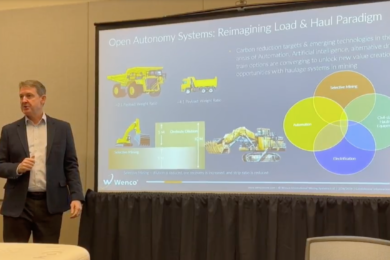Altech Chemicals Ltd is progressing detailed design and engineering work for its proposed Malaysian high purity alumina (HPA) plant, in accordance with the revised schedule agreed between Altech and its appointed EPC contractor M+W Group, following settlement on a fixed price construction contract framework. Some 55 M+W Group personnel located in both Germany and Singapore are assigned to the project. Design and engineering has advanced to a stage where the majority of the supply and installation engineering packages have been released to suppliers and installation vendors to obtain firm quotations for incorporation into a final construction cost and EPC contract value.
Process engineering equipment and piping designs are being managed by M+W Group’s German office. The civil, buildings, electrical, instrumentation and associated installation and engineering works are being managed by M+W Group’s Singapore and Malaysian offices. Overall project management and coordination is under M+W Group’s German office.
In Germany, the majority of the bills of quantities and supply packages have been completed and released to suppliers; the firm quotation response rates for these items are well advanced. M+W Group’s Singapore office is more advanced with the electrical equipment and design packages, with a majority of supplier firm quotations received. Civil and building designs are substantially complete with almost all packages released to suppliers; firm quotation response rates for these packages are well advanced.
Electrical design, which is being managed by M+W Group Singapore and includes all HPA plant site power requirements such as substations, incoming high-voltage power feed and utility supplier high-voltage substation is substantially complete.
Instrumentation and process control designs are at an advanced stage, a majority of the packages have been released to suppliers and firm quotations are being received. Installation packages for CSA, piping, electrical, mechanical, instruments and building and site services, are however less advanced.
As is typical during project due diligence, design and engineering; plant design alterations, equipment selection adjustments and flowsheet optimisations have been made since the BFS was released. This included building steel requirements and associated civil works, which have increased significantly (approximately three fold) due to local building regulations (e.g. typhoon requirements); an increase in overall equipment loads; increases in building heights; and additional requirements in laboratory, admin and process control buildings.
In the process plant both kilns and the hydrogen chloride (HCl) recycle plant have been upsized to provide improved temperature stability and conversion performance. “Inconel 600” acid resistance steel has been added to kiln and waste gas handling systems to reduce the likelihood of impurity pickup and there has been extensive use of alumina linings on various equipment for impurity management. Overall, piping requirements have increased due to improved detailed 3D piping design and engineering.
In the process control area additional electrical instrumentation is required and process control units have been upgraded for the final design. Installation of a high-voltage substation to take the high-voltage power feed for the HPA plant and an expansion of the substation requirement due to additional equipment was required. On the environmental side, the on-line storm water management system was upgraded to align with local storm water surge management requirements.
The fixed price EPC contract with M+W Group is an extremely positive outcome as it significantly de-risks the construction phase of the project; specifically, completion risk (cost and timeline) and project operability risk (at completion and handover).
M+W Group is not yet in a position to provide the company with an estimate of the fixed price EPC contract value, or the final capital cost estimate for the HPA plant. These will be provided when the majority of firm quotations are received from equipment suppliers and installation vendors, which are expected towards the end of this current quarter.
Altech Managing Director Iggy Tan: “Overall, the detailed design, engineering and associated final EPC contract price formation is progressing at the required rate to align with the German government export credit agency project finance cover application and approval processes. Altech continues to fund all detailed design and engineering activities in order to expedite project development.”
Altech is aiming to become one of the world’s leading suppliers of 99.99% (4N) high purity alumina (HPA) (Al2O3). This is a high-value, high margin and highly demanded product as it is the critical ingredient required for the production of artificial sapphire. Artificial sapphire is used in the manufacture of substrates for LED lights, semiconductor wafers used in the electronics industry, and scratch-resistant artificial sapphire glass used for wristwatch faces, optical windows and smartphone components. There is no substitute for HPA in the manufacture of artificial sapphire.
Global HPA demand is approximately 25,315 t/y (2016) and demand is growing at a compound annual growth rate of 16.7% (2016-2024), primarily driven by the growth in worldwide adoption of LEDs. As an energy efficient, longer lasting and lower operating cost form of lighting, LED lighting is replacing the traditional incandescent bulbs.
Current HPA producers use an expensive and highly processed feedstock material such as aluminium metal to produce HPA. Altech completed a BFS for the construction and operation of a 4,000 t/y HPA plant at Tanjung Langsat, Malaysia. The plant will produce HPA directly from kaolin clay, which will be sourced from the company’s 100%-owned kaolin deposit at Meckering, Western Australia. Altech’s production process will employ conventional “off-the-shelf” plant and equipment to extract HPA using a hydrochloric (HCl) acid-based process. Production costs are anticipated to be considerably lower than established HPA producers.
The company is currently in the process of securing project financing with the aim of commencing project development in Q3, 2017.










